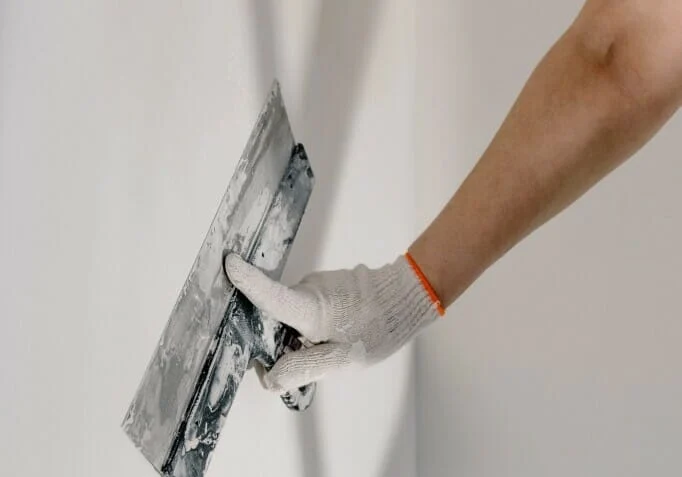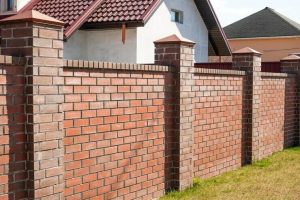We have put together a comprehensive guide for your next project on how to install shiplap in your home.
Shiplap, a timeless interior design element, has gained remarkable popularity over the years for its rustic charm and versatility. This distinctive wall covering, characterized by its overlapping wooden boards, not only adds a touch of elegance to any space but also provides a sense of warmth and character.
Shiplap’s journey dates back to centuries ago when it was first utilized in shipbuilding, hence the name. Fast forward to today, and shiplap has seamlessly transitioned from maritime use to becoming a cherished interior design element.
Shiplap’s Integration Across Design Styles
Shiplap’s charm shines in its capacity to seamlessly complement diverse interior designs, ranging from coastal and farmhouse aesthetics to contemporary and industrial themes.
Beyond being a guide for installing shiplap wall, this blog aims to shed light on the myriad creative possibilities it offers for home transformations.
Whether you’re a DIY aficionado or a newcomer eager to tackle your inaugural home project, this comprehensive guide is sure to provide valuable insights.
What is Shiplap?
Shiplap – a distinctive form of wooden paneling, renowned for its indigenous use in safeguarding ships against extreme weather conditions and frigid temperatures.
Unlike conventional rectangular planks, the original shiplap boasts a unique design, featuring alternating recesses known as rabbets along its sides. These rabbets interlock seamlessly, creating a formidable barrier when the panels are stacked together.
So, delve into the realm of shiplap installation and discover how to infuse your rooms with an authentic sense of charm.
5 Primary Reasons for Installing a Shiplap
1. Room Enhancement
Shiplap isn’t confined to a specific room. It can revamp living rooms, bedrooms, kitchens, bathrooms, and more. Its ability to add texture, depth, and character to walls transforms any space into a welcoming environment.
2. Design Flexibility
Shiplap’s clean lines and understated elegance make it suitable for a wide range of interior design styles. Whatever the style of your home, shiplap can easily be incorporated into any design scheme.
3. Ease of Installation
Whether you’re a seasoned DIYer or a complete beginner, shiplap’s easy installation will appeal to both. With a bit of guidance on how to install shiplap, you can embark on a transformative home improvement project.
4. Longevity and Timelessness
There is something timeless about shiplap. It has maintained its charm for centuries, proving that it’s not just a fleeting trend but a timeless choice for enhancing your living spaces.
5. Paint and Stain Options
Shiplap’s surface is perfect for experimentation. You can paint it in various colors to match your interior scheme or stain it to bring out the natural wood grain. This adaptability ensures it complements your desired atmosphere.
10 Easy Steps for Installing Shiplap:-
1. Prepare Walls

Preparing your wall before installing shiplap is a critical step that lays the foundation for a successful and flawless installation. Any existing imperfections or protrusions on the wall can result in uneven gaps between the shiplap boards, compromising the clean, cohesive look you’re aiming for.
Addressing moisture concerns before installation can prevent potential problems down the line. Prepping the wall helps create a moisture barrier, safeguarding your investment.
Investing time in prepping your wall contributes to the long-term durability and appearance of your shiplap installation.
2. Paint

Once your surface is ready, apply a primer to create an optimal base for the paint. This is especially crucial if you’re transitioning from a darker color or working with raw wood. Choose a paint designed for wood surfaces and opt for semi-gloss or satin finishes for their durability and moisture resistance.
Allow sufficient drying time between coats, adhering to the manufacturer’s guidelines to avoid uneven textures. for this reason Maintain proper ventilation in the painting area to expedite drying and reduce fumes.
3. Measure Wall

Measuring the wall is a foundational and crucial step in the process of installing shiplap. Accurate measurements ensure that the shiplap boards fit perfectly within the available space.
The process allows you to establish a proper starting point and maintain symmetry throughout the installation. Precise measurements help you determine the exact amount of shiplap material you need.
Proper measurements contribute to the overall visual appeal of the shiplap installation. As a result, by measuring carefully, you’ll ensure that every shiplap board fits perfectly, resulting in a stunning transformation.
4. Mark Vertical Studs

Marking the vertical studs on your wall is a pivotal starting point in shiplap installation. These studs serve as the secure anchor points for your shiplap boards.
Using accurate markings and locations will ensure that the shiplap is properly affixed to a stable foundation, ensuring the installation’s strength and longevity.
5. Make a Guideline

Creating a guideline is the next step in your shiplap journey. Use a level and a pencil to draw a straight, level line along the wall where you want the first row of shiplap to be.
This guideline acts as a reference point, ensuring that your shiplap installation starts off level and aligned.
6. Follow Guidelines

Following the guideline you’ve marked, lay out your shiplap boards accordingly.
The alignment of each board in accordance with the guideline ensures an attractive and uniform installation.
7. Attach First Row of Shiplap

Now, it’s time to attach the first row of shiplap boards to the wall. Use nails or screws to secure the boards to the vertical studs you marked earlier.
This first row sets the tone for the entire installation, so make sure it’s level and well-affixed to the wall.
8. Place Nickel Spacers

To ensure consistent spacing between each shiplap board, use nickel spacers as you install subsequent rows.
In addition to maintaining a uniform gap, these spacers allow for expansion and contraction due to changes in temperature.
9. Stagger Cuts

As you progress up the wall, you may need to cut shiplap boards to fit around corners or obstacles. Stagger these cuts to create a more natural and visually appealing pattern.
Staggered cuts minimize the appearance of seams and create a smoother transition between boards.
10. Attach Matching Baseboards

Once you’ve completed the shiplap installation on the wall, attach matching baseboards at the bottom.
Above all this finishing touch adds a polished look to the installation, concealing any gaps between the bottom row of shiplap and the floor.
Top 5 Methods for Mastering Shiplap Application
In each of these spaces, shiplap wall goes beyond being a mere wall covering. In other words it becomes an integral part of the room’s narrative, enhancing the ambiance and setting the stage for experiences that go beyond the visual realm.
1. Chic Farmhouse Kitchen

Enhance your kitchen’s rustic charm by installing shiplap on the lower half of your walls. This classic wainscoting style lends a touch of nostalgia while serving as a functional backsplash. The shiplap’s wooden texture complements open shelving and vintage accents, adding to the farmhouse vibe.
It’s not just a wall covering; it’s a statement piece that captures the essence of a modern-day farmhouse kitchen.
2. Elegant Dining Room Accent

Elevate your dining experience by installing shiplap horizontally as a feature wall. A dark-stained shiplap wall can act as a dramatic backdrop to your dining table, creating an intimate ambiance reminiscent of a luxurious restaurant.
The interplay of light and shadow on the shiplap’s surface adds depth to your space, fostering conversations and shared moments.
3. Inviting Entryway Foyer

Make a lasting impression with a shiplap-adorned entryway that exudes warmth and hospitality. Installing shiplap on the foyer wall introduces an element of surprise as guests step inside. The unique texture beckons them to touch and feel, setting the tone for an inviting atmosphere.
You welcome people into a space that’s both comfortable and stylish as your front door swings open.
4. Soothing Bathroom Oasis

Turn your bathroom into a soothing oasis by enveloping the space with shiplap. Install shiplap vertically from floor to ceiling, creating an illusion of height and airiness. The wood’s natural warmth offsets the coolness of bathroom fixtures, establishing a harmonious balance.
As you soak in the tub, the shiplap walls provide a visual escape, evoking thoughts of coastal cottages and relaxation by the sea.
5. Serene Bedroom Retreat

Shiplap can transform your bedroom into a serene retreat by adorning the wall behind your bed. Install shiplap vertically for an illusion of heightened ceilings and an elongated space. The tactile texture of shiplap provides a backdrop that’s both visually appealing and calming.
Similarly with the shiplap wrapping around your bed, the soft shadows create a tranquil atmosphere reminiscent of a cozy cabin.
FAQs
1. What’s the ideal approach for starters to tackle shiplap installation?
Well, beginners can set themselves up for success by taking things step by step, making sure to measure precisely, employing a level guideline, and beginning with a smaller project to get the hang of it.
2. Why shouldn’t shiplap be used?
Shiplap may not be suitable for areas with high humidity or moisture, as it can warp or deteriorate over time in such conditions.
3. How are shiplap seams concealed?
Shiplap seams can be concealed using wood filler or caulk to create a smooth, seamless surface before painting or finishing.
4. Is it necessary to remove existing wallpaper or paint before installing shiplap?
Yes, it’s advisable to remove wallpaper or paint from the wall before installing shiplap. A clean and even surface ensures better adhesion and prevents bumps or uneven gaps between the shiplap boards.
5. Can shiplap be installed over drywall or plaster?
Yes, shiplap can be installed over drywall or plaster. It’s important to ensure that the wall is structurally sound and free from damage. Installing shiplap over a solid backing creates a sturdy foundation for your installation.
Kick Off Your First Shiplap Wall:-
Above all as we conclude this journey through the meticulous steps of shiplap installation, one thing becomes clear – shiplap isn’t merely wooden boards on a wall; it’s an expression of your dedication to crafting a space that resonates with charm and sophistication.
But beyond the technicalities, how to install shiplap is a testament to patience, care, and creativity. So, as you embark on your shiplap journey, remember that every nail, every cut, and every decision contributes to the holistic narrative of your space.
Read More:-
- 20 Best Home Remodeling Ideas That You’ll Love
- 31+ Wainscoting Ideas and Design That You’ll Love
- 15 Amazing Shiplap Ceiling Ideas to Spruce Up Your Roof



